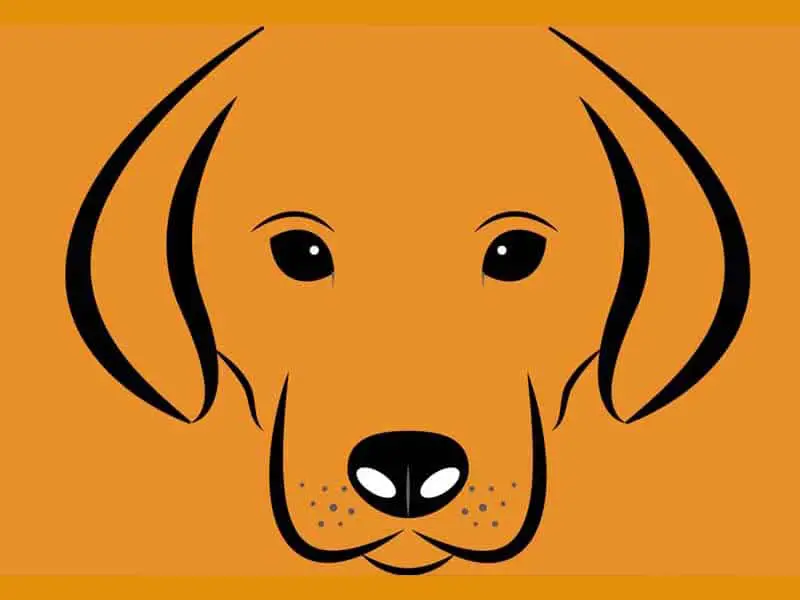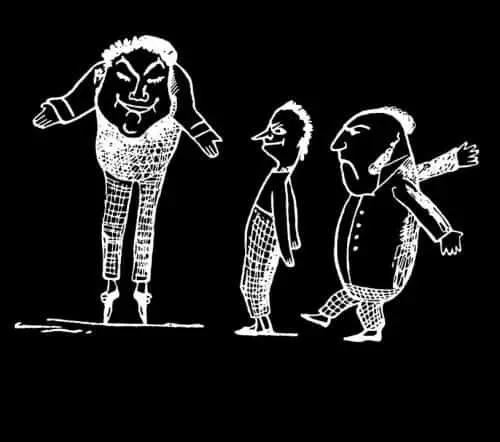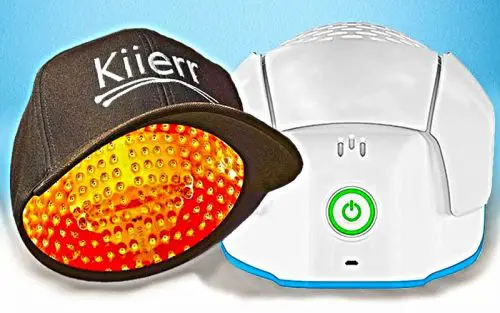Best Puppy Food Ingredients for Your Pet: So how do food ingredients and nutrition affect your puppers growing up? Growth and development appear on a faster scale in puppies as their tender, raw and exquisite brains rapidly tread forward.
Even medium-sized dogs can grow tremendously fast within a short period. Henceforth, eating a healthy diet is one of the most critical requirements and a top priority if you want to save your dear puppy from the hassle of falling prey to illness.

Inspiring your journey, one story at a time. #LifeFalcon.
Neglecting their eating habits and deficiency of essential nutrients in their food ingredients can cause the waning and waxing of the immunity system of your little pup. Don’t we all want our dogs to remain healthy and lively? Therefore, here is a list of food ingredients that you should keep a tab on as a puppy owner:-
Table of Content
Power Protein!
Proteins are an essential part of the diet because of their vital role in forging muscle development. The divine goodness of proteins relies on their ability to fortify the growth of tissues and build much-needed strength.
Chicken, meat, beans, eggs, and dairy products like milk, yogurt, and cheese are all excellent protein sources. Meat provides 30% of the lean protein crucial for keeping the puppy strong and regulating the body weight. You can also give organ meat, that is, meat from the kidney, heart, and liver, but do not overload the diet with meat. Protein intake also requires exercise; therefore, focus on after-eating habits, including a walk and physically benefiting activities. Meat meals are also an excellent option, given that they are processed and curated to meet the particular needs of the animal. They are even considered healthier than an actual piece of meat.
Do you know that puppies generally need food enriched with 21-26% protein? Are you providing them enough protein?
Empowering Carbohydrates
Carbohydrates are the dietary fiber that nourishes the puppy with loads of energy. As per the charts of a balanced diet, the most common source of carbohydrates for puppies and dogs are cereals, essentially rice.
Besides these, put veggies, fruits, and kale rice on the diet chart of your puppy. You can also go for wheat, soy, and corn, but there have been occurrences when puppies had grown sensitive to these ingredients. Also, to include Carbs, gets advice from a veterinarian regarding the quantity of nutrition over your puppy’s needs.
The inclusion of carbohydrates is generally higher than the rest; it makes up about 42% of the food intake.
Fabulous Fatty Acids!
Fatty acids and preservatives are probably the expensive part of the entire puppy diet chart. Fat is needed because it provides stability to the puppy, regulation of body temperature, a healthy fur coat, and proper digestion. It generally should not exceed higher amounts, and its proportion remains around 15-20% in the diet.
The viable sources for fatty acids and preservatives are mostly fish oil, sunflower oil, and poultry or dairy products.
Electrolytes
Don’t forget electrolytes! Add electrolytes to their diet. Wondering what electrolytes are? It includes sodium, chloride, and potassium. Food items that have electrolytes must be there in your pup’s diet plan. But make sure not to add too much or too little of it. Food items like pumpkin, watermelon, Coconut water, Avocados, Bananas, and many others have electrolytes. These items are essential for almost every aspect of your dog’s health, from organ function to muscle use. Do you know an improper balance of electrolytes can be very dangerous for your dog? When a dog’s electrolyte balance is out of proportion, it can result in kidney or other organ failures.
Fiber
Two types of fibers can be fed to your pup, soluble and insoluble. Fibers are essential because they keep the digestive system in good health and help keep a healthy weight, prevent anal gland disease, and prevent obesity. So, if you have not been adding fibers to your pup diet, start adding them! Some soluble food items are oats, bran, nuts, beans, lentils, and peas. Insoluble food items include brown rice, carrots, cucumber, and potatoes. It is a fact the finding the right amount of fiber for your furry friend can be difficult; therefore, consult a vet before feeding your pup.
Fats, the Healthy ones!
We always think that eating fats will be unhealthy for our pup’s body. But NO! You are wrong. Fats are not the enemy! Prefer including healthy fats in your diets diet rather than unhealthy ones. Healthy fats are an essential part of a dog’s diet. Healthy fats, such as those found in meats, helps in promoting proper cell function and improve your dog’s coat. Sunflower oil, coconut oil, fish oil, flaxseed oil, and olive oil are also good fat sources.
Vitamins and Minerals
The stamina and the immunity system to withstand the attack of diseases and infections are weaker than that of a well-built dog. Therefore, to build their resilience, vitamins and minerals are required in abundance. However, oversupplying these can impact the physical and mental growth of the puppy.
Vitamins, needed for body energy and proper digestion, can be found from fat-soluble sources like Vitamin A, E, K, and D, and water-soluble sources like Vitamin B and C. Minerals, generally needed in fewer amounts yet important, can save from health problems like joint disorders of bone, deficiency of iron and fallen immunity.
Macro minerals needed are calcium, sodium, magnesium, sulphur, phosphorus, and potassium. Micro-required minerals are copper, zinc, and manganese. Micro minerals are required in fewer amounts, while the macro is needed in high doses.
Preservatives
Preservatives are the chemicals that are added to the food because they help maintain the quality of the food, improve its appearance, and prevent it from spoiling. Preservatives help to keep your dog’s food fresh. Natural preservatives found in pet foods include vitamin C (ascorbic acid), vitamin E (mixed tocopherols), and rosemary. Opt for these safer options rather than chemical ones that can harm your fur-baby.
Frequently asked Questions
- Is canned food healthy for pups?
Some of the canned foods are super healthy for your pup, whereas some are not. Therefore it is advised to check the canned food product before buying.
- Can homemade food be given to the pup?
Nothing is better than homemade food. Our puppy needs proper nutrients, minerals, and proteins to grow healthy. Homemade puppy food can save you money while also allowing you to adjust a diet to your puppy’s specific needs. But you need to be very careful while preparing the diets of the pup.
- What should be included in the diet of puppies?
Typically a pup requires double the calories of an adult dog for growing. You need to include in their diet the following food items:
- Carbohydrates like potatoes, rice
- Vegetables like peas, beans, carrots
- Fats (prefer vegetable oil)
- Vitamin and minerals (buy it from a good company)
- Which food must not be given to the pup?
The following ingredients must be avoided:
- Excess salt food
- Food having artificial colours and flavoured
- Corn syrup
- Wheat
- Soybean oil
- Fillers like rice bran, wheat bran, oat hull, etc
- Bones, undeveloped eggs
- Sugar
- Should I buy expensive brand-name food instead of store-brand?
It is the owner’s choice what type of food/diet he should feed to their pups. To have an idea of which brand is best, he must do appropriate research on it. It’s a common observation that a brand with good goodwill will be selling its products at a very high cost compared to others. You must go to a pet store to purchase them. Instead of stocking the healthiest pet food, supermarkets stock what sells the most.
- Is there a diet named a prescription diet? How is it different from regular diets?
Prescription diets are special diets formulated to aid in the treatment and care of pets suffering from specific ailments or diseases (such as allergies, heart disease, or diabetes). Well, the tenure for which this diet needs to be followed depends on your furry friend’s condition. Sometimes it is prescribed for a short period, whereas some of the dogs would have to take this diet for the rest of their lives. It is imperative to get these diets under the supervision of your vet.
Summary
While buying the dog food, do read the labels that mention the food ingredients present. If you find anything that you do not seem to comprehend, kindly avoid that. You can also use the vet’s advice and, if needed, read some books that provide information related to feeding healthy food to the puppies. Take advice and be well informed if you happen to prepare a meal on your own for your puppy.
You can surf through various online stores like Petstock (https://www.petstock.com.au/dog), where we have all kinds of food needed for the growth and development of your pet dog available, ranging from wet food to dry food to frozen and fresh food. Always remember, each pet has its own needs, and you, as their human, need to realize them and be regularly in touch with your Veterinarian.



















